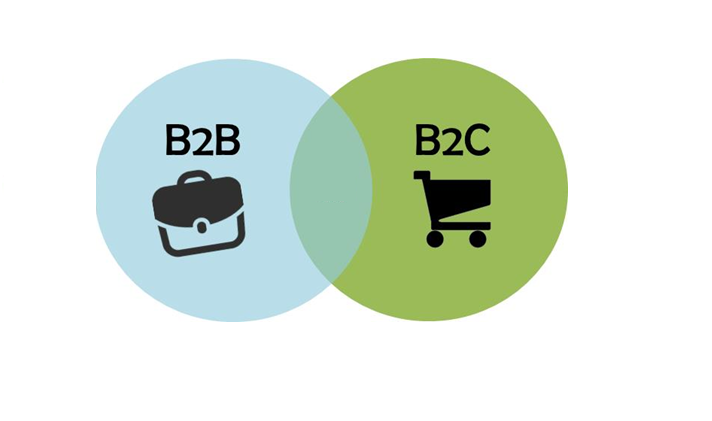You might have heard the terms “B2B” and “B2C” before. Maybe you know a little about them, but you’re fuzzy on some of the details. We’ll get into both of these terms in this article so you can understand them completely.
If you are going to start a business soon, deciding on a B2B or a B2C model will make a huge difference. That is because your entire strategy with one will be different than what you’d do for the other.
What Do These Terms Mean?
We’ll start with a basic B2B and B2C definition. B2B means business to business. In other words, when you’re running a company, and you’re working with other businesses, or other businesses are your clients, that’s a B2B model or framework.
B2C means business to customer. You’re marketing yourself to customers and selling to them rather than to other companies.
When you look at these two business models, even on the surface level, you’ll begin to see that they’re light-years apart. With a B2C model, you’ll probably want to advertise and market your products and services completely differently than if you have a B2B model. If you decide on B2B, you’ll need to think more about technology strategy services that you ever would with a B2C business plan.
What Are Some B2C Examples?
This concept is not the easiest in the world to pick up, so some examples are in order. Generally, you’ll find more B2C businesses out there thriving in the world.
Target is a B2C business. As a customer, you walk into the store, pick out a few items, pay, and walk out with them. Target’s customer is the individual who walks in off the street.
You might also say that Burger King is a B2C business, or Home Depot, or Pizza Hut. Your doctor’s office is a B2C business. Any time you’re serving the consumer directly, you’re a B2C business, and you need to market yourself accordingly.
What About B2B?
B2B businesses are those that never advertise or market themselves to the general public because the general public doesn’t usually require their products. A company that mass-produces napkins for restaurants would be a B2B entity.
This is not the same as walking into a store and buying a single package of 200 napkins. The B2B napkin manufacturer might want Wendy’s or KFC as a client because they’re trying to sell them millions of napkins at one time.
Often, B2B models operate on a different scale than B2C ones. That’s because they want retail giants as customers instead of an individual that walks in and buys a $5 product.
Which One is the Better Model?
It’s impossible to say that either one of these is the superior business model. Both of them can work quite well if you’re marketing your services or products correctly.
The real issue, if you’re starting a business, is which model is right for you. One thing to keep in mind, as you’re trying to figure that out, is that once again, B2B models are usually so much larger in scope than B2C ones.
It’s possible that as an individual, you might start a B2B company. It’s probably going to be a lot more challenging than founding a B2C one, though, because when you hear the term “small business,” you’re not talking about a B2B model. That’s because, by their very nature, B2B companies are larger and try to land bigger clients.
How Does Their Marketing Differ?
You can look at B2B and B2C business model marketing to see the difference between them. With B2C, you might see social media marketing. You might notice a more old-fashioned approach, such as TV commercials or radio spots.
If you have a B2B company that you’re trying to get off the ground, you might utilize a highly visible website. You might focus on SEO quite a bit since individuals who are looking to purchase something in your niche will probably use very specific, keyword-rich Google searches.
B2B companies often advertise on industry websites and in niche-specific publications. They need to get their name in front of company heads that make purchasing decisions, rather than in front of the average consumer.
Now that you comprehend the difference between these two concepts, you might decide that one sounds better than the other. There are certainly reasons to go in either direction as a business owner, but maybe one feels like the superior choice for your particular situation.
